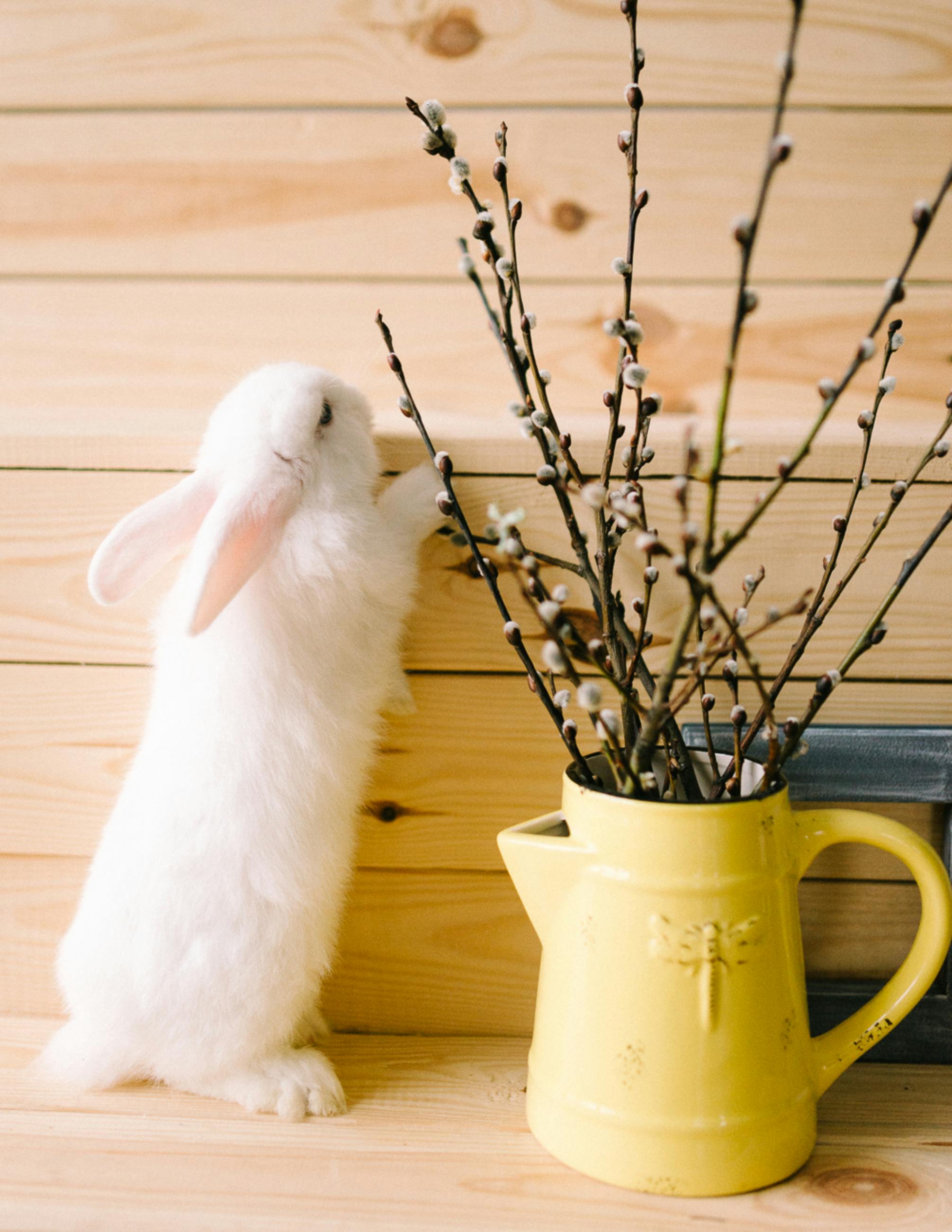
Effective Guide to Rabbit Gestation Period in 2025
Understanding the rabbit gestation period is crucial for any pet owner or rabbit breeder aiming to promote healthy breeding practices. In 2025, as new insights and techniques continue to emerge, learning about rabbit pregnancy can enhance your experience and success in raising these adorable animals. This article will guide you through the essential facets of rabbit gestation, from the initial mating season to the birthing process and caring for newborn rabbits.
Rabbits are unique creatures with a relatively short gestation period, typically lasting 28 to 32 days. The timeline is vital not just for breeding but also for ensuring the health of both the mother and her litter. Alongside learning about rabbit reproductive cycles, we will explore signs of pregnancy, care requirements, and tips to prepare for the arrival of baby rabbits.
By the end of this guide, you'll have a better understanding of the rabbit pregnancy timeline, necessary nutritional guidelines, and practices to support your rabbit during gestation, leading to a healthy and thriving litter.
Key Takeaways: You will learn about the stages of rabbit gestation, essential care tips during pregnancy, signs of pregnancy in rabbits, and the importance of proper housing and nutrition for pregnant rabbits.
Understanding Rabbit Reproductive Cycle
Before delving into the gestation length in rabbits, it's vital to understand their reproductive cycle. The rabbit breeding process typically links closely with environmental factors and hormonal changes. Female rabbits (does) can become pregnant at just four to six months of age, depending on the breed. After mating, it’s essential to monitor their health and behavior, as rabbits can exhibit specific signs of pregnancy.
Rabbit reproductive health is influenced by multiple factors such as age, breed, and environmental conditions. Optimal conditions for rabbit breeding involve a stress-free environment and appropriate nutrition to ensure high rabbit fertility rates. The timing for rabbit breeding is crucial, as does tend to have a monthly heat cycle, peaking during warmer months.
Observing your doe for signs of heat can help determine the best timing for mating. Female rabbits may become more vocal, display an increase in energy, or even exhibit territorial behaviors. Proper understanding of rabbit cycles ensures successful breeding and healthier litters.

Common Rabbit Breeds and Their Breeding Characteristics
Different breeds have unique characteristics influencing their breeding behavior and gestation. Smaller breeds like Netherland Dwarfs might have smaller litter sizes, while larger breeds like Flemish Giants can have larger litters. Familiarizing yourself with the specific needs and behaviors associated with common rabbit breeds is key to ensuring successful breeding.
Additionally, understanding breed-specific genetics and health concerns can guide your rabbit breeding strategy. For example, some breeds may be more susceptible to health issues, requiring extra monitoring and care during pregnancy.
Moreover, knowing the nursing behavior of different breeds helps prepare for successful maternal care once the babies are born.
Rabbit Mating Timing and Their Fertility Rates
The fertility rate of rabbits can vary, typically ranging from 60% to 80% under optimal conditions. Female rabbits can mate multiple times within a short period, resulting in successful pregnancies. To ensure a successful mating, timing is crucial, as multiple unsuccessful attempts can lead to stress for the doe.
Monitoring your rabbit's hormonal changes and behavior closely during breeding season can help you determine the best moments for mating. Understanding these factors can result in a more efficient breeding process, leading to healthy offspring and minimizing the chances of complications during gestation.

Signs of Rabbit Pregnancy and Health Monitoring
Following successful breeding, recognizing the early signs of rabbit pregnancy is essential. Some typical signs include weight gain, behavioral changes, and the formation of a nesting instinct. Does may begin gathering materials for the nest approximately a week before giving birth.
Health monitoring for pregnant rabbits should include regular weight checks and observation of eating habits. It's important to provide adequate nutrition, as feeding pregnant rabbits a balanced diet rich in vitamins and minerals is paramount for their health and the health of their unborn kits.
Veterinary care for rabbits during pregnancy can address any emerging issues, such as complications that could affect gestation length or the health of the litter.
Rabbit Pregnancy Tracking: Essential Tips
Maintaining a pregnancy tracking system can help monitor the rabbit's gestational progress. Consider keeping a journal to note behavioral changes, assume nesting patterns, and health observations. This practice will assist you in anticipating any complications and ensuring timely veterinary check-ups.
In cases of unusual behavior, such as lethargy or loss of appetite, prompt veterinary intervention can be critical in managing rabbit pregnancy complications.
Nutrition and Care for Pregnant Rabbits
Caring for pregnant rabbits effectively requires prioritizing their nutritional needs. Proper feeding during pregnancy involves offering a high-quality diet that includes hay, fresh vegetables, and specially formulated pellets. Rabbit gestation nutrition should emphasize fiber and protein to support growing kits.
During the final weeks of pregnancy, consider supplementing the doe’s diet with high-energy foods to help her gain the necessary weight for nursing. It's essential to monitor the rabbit's health throughout, ensuring she does not become overweight, which can complicate the birthing process.


Preparing for Rabbit Nesting: Best Practices
Preparing for rabbit nesting is a crucial step in anticipating the birthing process. Rabbits prefer a quiet, safe environment where they can comfortably give birth. You can create an appropriate nesting area by providing safe nesting materials, such as straw or shredded paper.
Rabbit nest preparation needs to occur weeks before the expected delivery, allowing the mother to acclimate to her birthing space. Ensuring this area is free from disturbances will help reduce stress for the doe, promoting a healthier birthing experience.
Understanding the Rabbit Birthing Process
The rabbit birthing process typically occurs without complications in a secure environment. The doe will often create a nest before giving birth to keep her kits warm. Most does can deliver multiple kits within a few hours, making the process quite rapid.
As a rabbit owner, observing the birthing process can provide insights into maternal behavior and help you assist if any complications arise. It’s crucial to have necessary resources on hand, such as veterinary contact information, and to monitor the litters closely after delivery, especially for signs of distress or health issues.
Post-Birth Care for Rabbits: What to Expect
After the birth of the kits, maternal care is essential. The doe will nurse her young and protect them, which underscores the importance of ensuring her continued health and access to food. Managing rabbit litters requires careful monitoring, especially during their early weeks of life.
Common rabbit pregnancy issues may arise post-birth, such as failure to nurse or rejection of kits. Therefore, understanding rabbit gestational care and having a connectivity plan for any needs that arise is beneficial. Ensure that you provide the doe and her litter with comfortable housing to promote a calm, nurturing environment.

Conclusion: Best Practices for Managing Rabbit Gestation and Breeding
Managing rabbit gestation and breeding is a rewarding experience that requires knowledge and care. By understanding the rabbit reproductive cycle, observing pregnancy signs, preparing for nesting, and providing proper nutrition, you set the stage for a successful breeding experience. Monitoring your rabbit’s health throughout this process is vital and will lead to a thriving litter.
As a responsible rabbit owner, always be prepared for common pregnancy complications, and ensure you’re ready to offer necessary care and intervention when needed. By following these effective strategies and insights outlined in this guide, you will be well-equipped to navigate the journey of rabbit gestation with confidence.
```